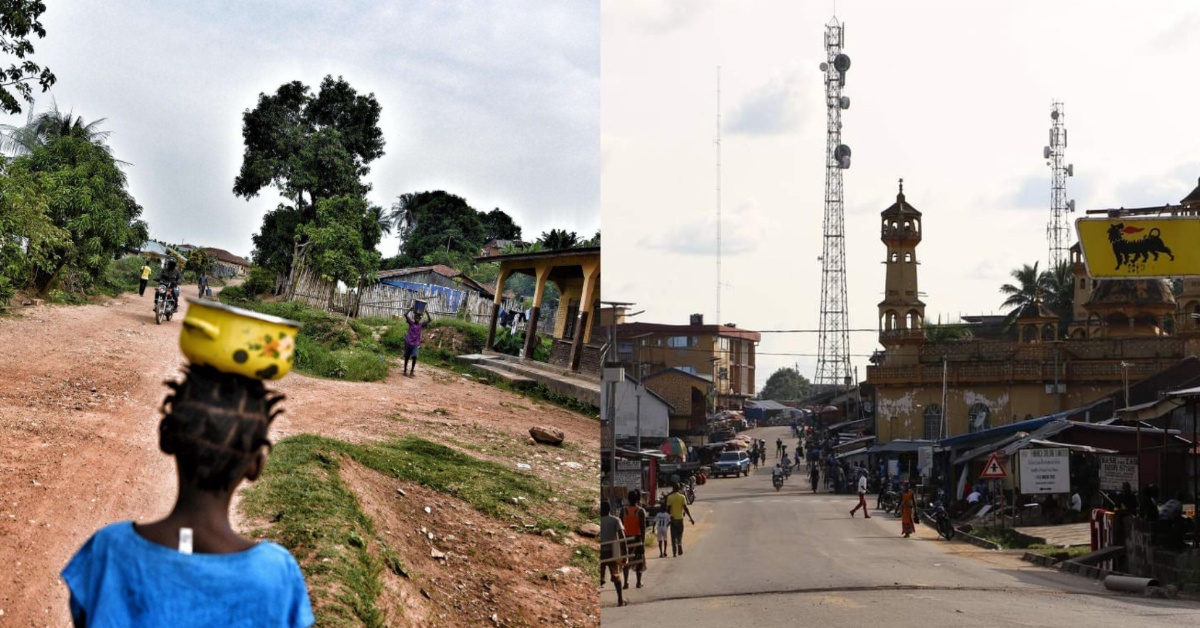The residents of Tonkolili District, Northern Region of Sierra Leone have bemoaned the unprecedented hardship they are faced with as the country’s economy retrogresses.
Speaking to Nightwatch Newpaper’s reporter, Ragan M. Conteh, they characterized President Julius Maada Bio’s administration as the harshest moment Sierra Leoneans have encountered since the country attained independence in 1961.
One resident, Pa Alpha Conteh of Patifu Mayawa Village, asserted that Sierra Leoneans fared better during the 11-year rebel invasion of Sierra Leone than under President Julius Maada Bio’s regime.
He claimed that the only difference between Bio’s regime and the rebel war was the use of guns to kill people indiscriminately.
Conteh further asserted that Sierra Leone’s economy is presently in a state of immense retrogression and that people are suffering bitterly, particularly in remote communities. He noted that the price of essential commodities, including the staple food rice, has skyrocketed, negatively affecting the lives of Sierra Leoneans.
“Can you imagine, we buy a bag of rice at NLE700 in Yele Town? It may get to sell at NLE800 in the next couple of months if government fails to address the situation,” he said.
Conteh emphasized the need for the government to implement systems to save the people from hunger.
Sampa Yatheh of Robis Village in Gbonkolenken Chiefdom stated that women are facing hunger strikes as they are vulnerable and mostly dependent on their husbands.
She explained that many youth who previously farmed are now solely dependent on okada riding in the villages, exacerbating the hardship in most villages.
Yatheh also pointed out that the government’s handling of the bread and butter issue promised in the 2018 general election is another factor contributing to the situation.
“The people’s welfare matters most. Government should put more money and effort in agriculture to feed Sierra Leoneans. The people are facing harsh moments,” she said.
Yamba Sankoh of Rokontha Village explained that the country’s economy has retrogressed due to various factors, including the fact that many businesspeople who were once farmers have shut down their farms to focus on gold mining in the villages.
Sankoh also noted that black stone mining, okada and kekeh riding have become new revenue streams for farmers, while others wait for political jobs in the villages.
He emphasized that Sierra Leone would not achieve its stated goals if the youth are idle and engaged in smoking kush and other lethal substances.
Sankoh then called on the government to ban the importation of such substances and to focus on creating more opportunities for the youth, particularly in agriculture.
“Most of the mad people plying the streets in urban areas and other communities in the country are young people who engage in smoking,” Sankoh said.
Mr. Koroma, a principal in one of the schools in Tonkolili District, reported that they are facing more problems in schools because students are engaging in more marijuana and kush consumption.
He disclosed that he had expelled more students this time around for causing trouble in schools than at any other time.
He cited a case where a student carried a knife to school and threatened a fellow student, which he attributed to the rampant consumption of kush.
Poverty and the exposure to international food price volatility are the underlying causes of vulnerability in Sierra Leone. Tonkolili is significantly affected by food insecurity. According to the UN Office for the Coordination of Humanitarian Affairs, the total number of people who are food insecure is 291,211 and the percentage of households food insecure (severe and moderate) is 74.1%. Tonkolili has a high prevalence of acute malnutrition in women (4.6%).











